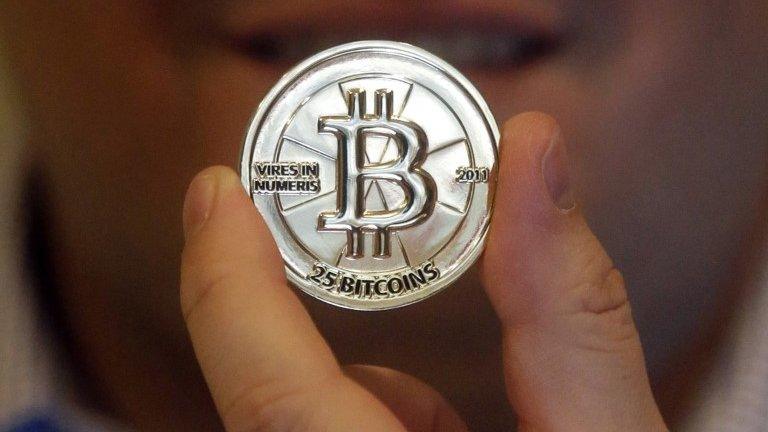Jersey group in campaign to create 'Bitcoin Isle'
- Published
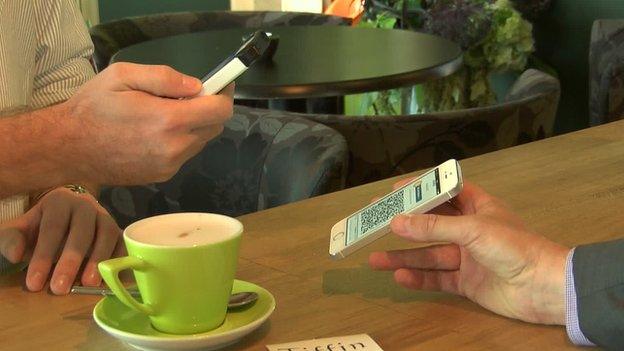
There are a number of businesses in the island that accept Bitcoin as payment
A campaign has been launched to make Jersey a world leader in digital currencies.
Bitcoin payments are already accepted in a handful of places but an industry expert says, if the States allow banks to accept and trade with it, Jersey could become a magnet for new business.
Robbie Andrews, of bit.coin.je, an industry body set up to promote and campaign for the currency, wants to create a "Bitcoin Isle".
Treasury Minister Senator Philip Ozouf said he wanted Jersey to be an early leader in the field.
There have been issues around the digital currency, including a lack of regulation and concerns over potential for money laundering and other illegal activity.
In October 2013 the FBI shut down online marketplace Silk Road. The site traded in drugs and other illegal goods and took payments using "crypto-currencies" such as Bitcoin.
In December 2013, Fiona Le Poidevin, Chief Executive of Guernsey Finance, said the current lack of regulation was an area of concern.
She said the Bitcoin concept had become "increasingly familiar, but it is still in its infancy and this brings with it both challenges and opportunities".
Senator Ozouf said: "[This] is a sector that could hold significant opportunities for Jersey.
"Our infrastructure of world-class financial services and digital expertise gives us the tools to be an early leader in the field. Innovation will be central to Jersey's future prosperity.
"We are keen to support local businesses by helping to create a well-regulated and responsive environment for investment in the sector."
Early in 2014 the Chinese government said Bitcoin was not a currency and banned financial institutions from dealing with Bitcoin exchanges.
BBC chief business correspondent, Linda Yueh, said: "It is clear that regulators around the world are unsure about what to make of Bitcoin and are still in the process of making up their mind if and how it and other crypto-currencies should be regulated."
Mr Andrews said Bitcoin was vital to the future of Jersey's economy and would be used globally.
"In the same way email changed how we send files globally, Bitcoin will change how we transact our lives. It is a network you can use for payment that is global and not managed by one industry body."
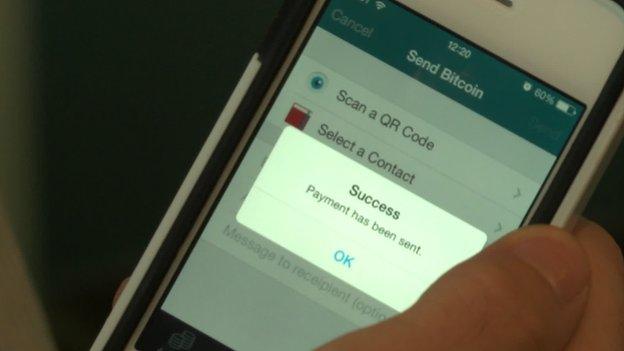
Bitcoin payments work by sending money from one wallet directly to another
He said he would like to see more places accept payment in digital currency.
"My plan would be that you get the bus and pay using your phone. You get the paper, you pay with your phone. And at no point do you constantly give people your credit card details."
Tiffin tearoom on St Helier's waterfront already accepts Bitcoin. Owner Giles Day said: "It is fast, reliable and a very secure payment method. It is the way of the future. It is what the digital and finance industry will be using and those two industries are key to Jersey.
"With a credit card, we get charged and it takes a while to get the money. We get Bitcoins into our account straight away, without any charges."
Mr Andrews said the next step would be Bitcoin banking, meaning workers would get paid in Bitcoins.
"That would require new legislation and the States need to act quickly if they want to capitalise on it," he said.
"At the moment there is a big push for a digital industry in Jersey to grow and if you asked any technologist what is the one technology that fits between technology and finance, it would be a crypto-currency like Bitcoin."
- Published19 June 2014
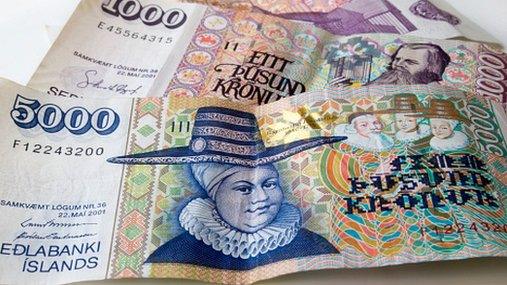
- Published3 June 2014
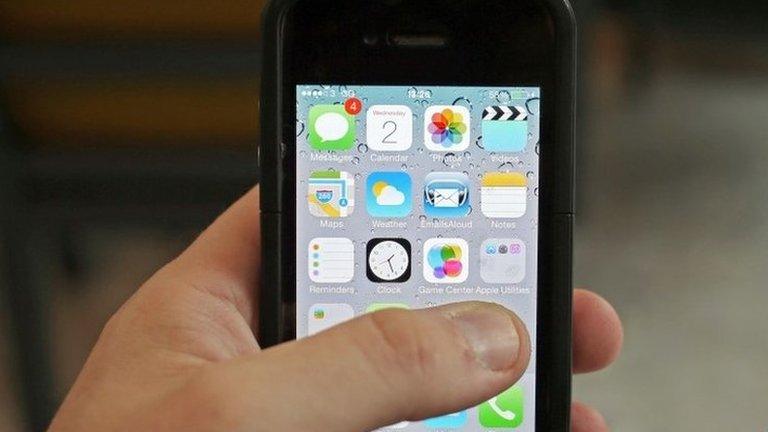
- Published29 May 2014
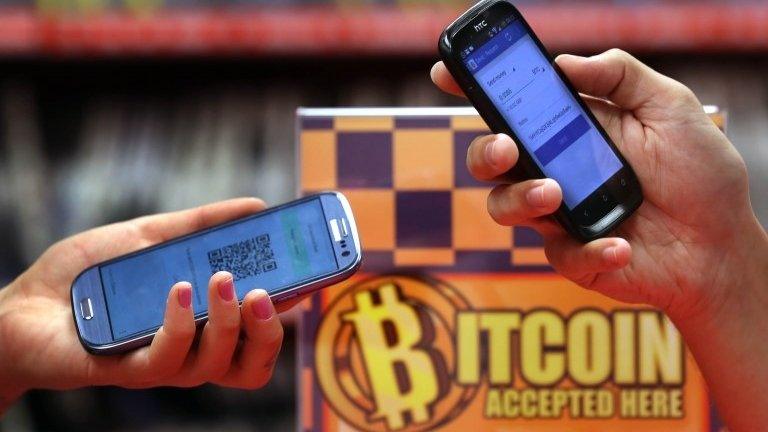
- Published7 May 2014
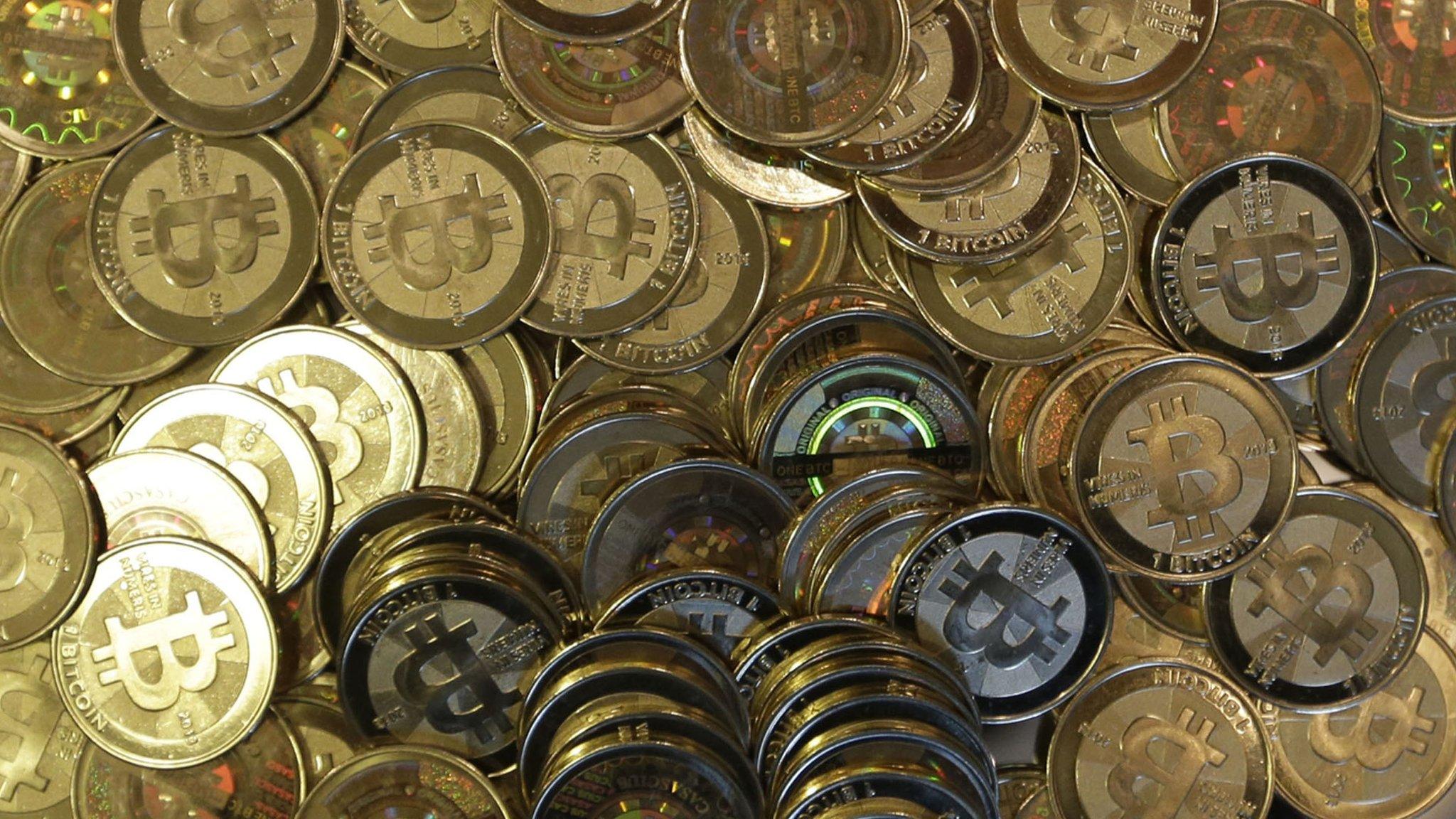
- Published29 April 2014
- Published25 February 2014
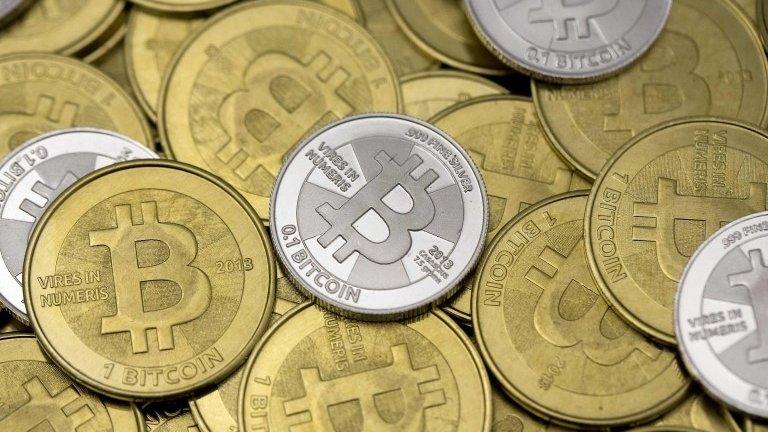
- Published10 February 2014
